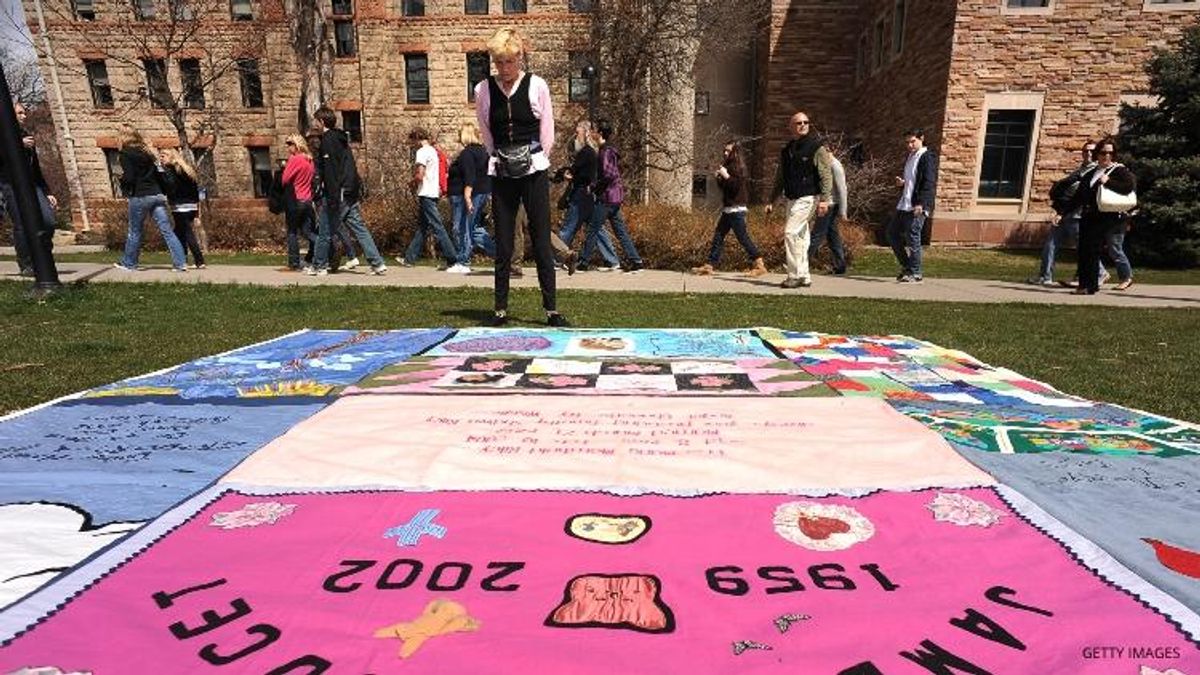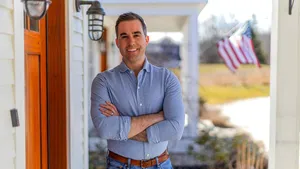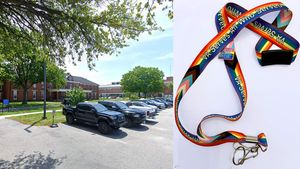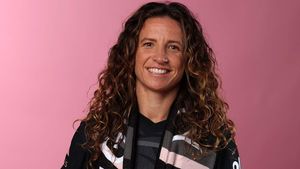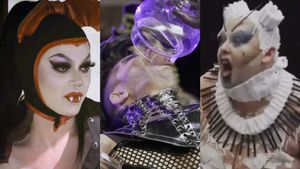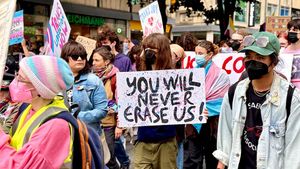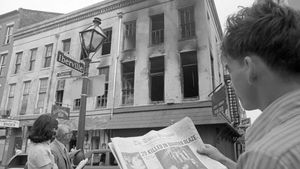ABOVE: Gert McMullin looks at some of the quilts that are on display on the green grass outside of Norlin Library on the University of Colorado campus in Boulder.
Facemasks made of leftover fabric from the NAMES Project AIDS Memorial Quilt are being donated to the homeless and those suffering from substance abuse, according to People Magazine.
The quilt was the brainchild of activist Cleve Jones who saw it as a way to honor the lives of those taken too soon during the AIDS crisis.
The National AIDS Memorial had planned on displaying the quilt in San Francisco this April after spending 20 years in Atlanta. The introduction of social restrictions in response to the COVID-19 global pandemic cancelled those plans, though. Immediately recognizing the dangers inherent in the current crisis, the creators of the quilt quickly identified an urgent area of need and sprang into action.
“We in the LGBT community understood what was happening in the early 80s,” Jones told People. “We had to create systems of care and support ourselves.”
The masks are going to facilities operated by Bay Area Community Services, which serves persons suffering from homelessness and addiction. They will be worn by residents and employees alike.
The masks, sewn by Gert McMullin, are just one small way the group seeks to create new systems of support organically grown to identify and meet evolving needs. The 64-year-old McMullin has sewn more of the 3 ft. by 6 ft. panels (symbolically representing the size of a coffin) than anyone else. She was one of the first to contribute her own panels to the quilt, which now resides in the Smithsonian Museum of American History.
McMullin is now the quilt’s custodian and chief coordinator. When the current COVID-19 pandemic hit, she was greeted with disturbing echoes from a painful past. Rather than do nothing, she returned to her sewing machine and began putting the leftover fabric to use in the current battle.
“During the AIDS crisis, I could go and do something,” lamented McMullin. “But now, I can’t. I’m not used to sitting around and not helping people.”
While she may not be on the front lines as she had been in the past, McMullin is certainly not helping people. Her sewing is once again making a difference where it counts.
